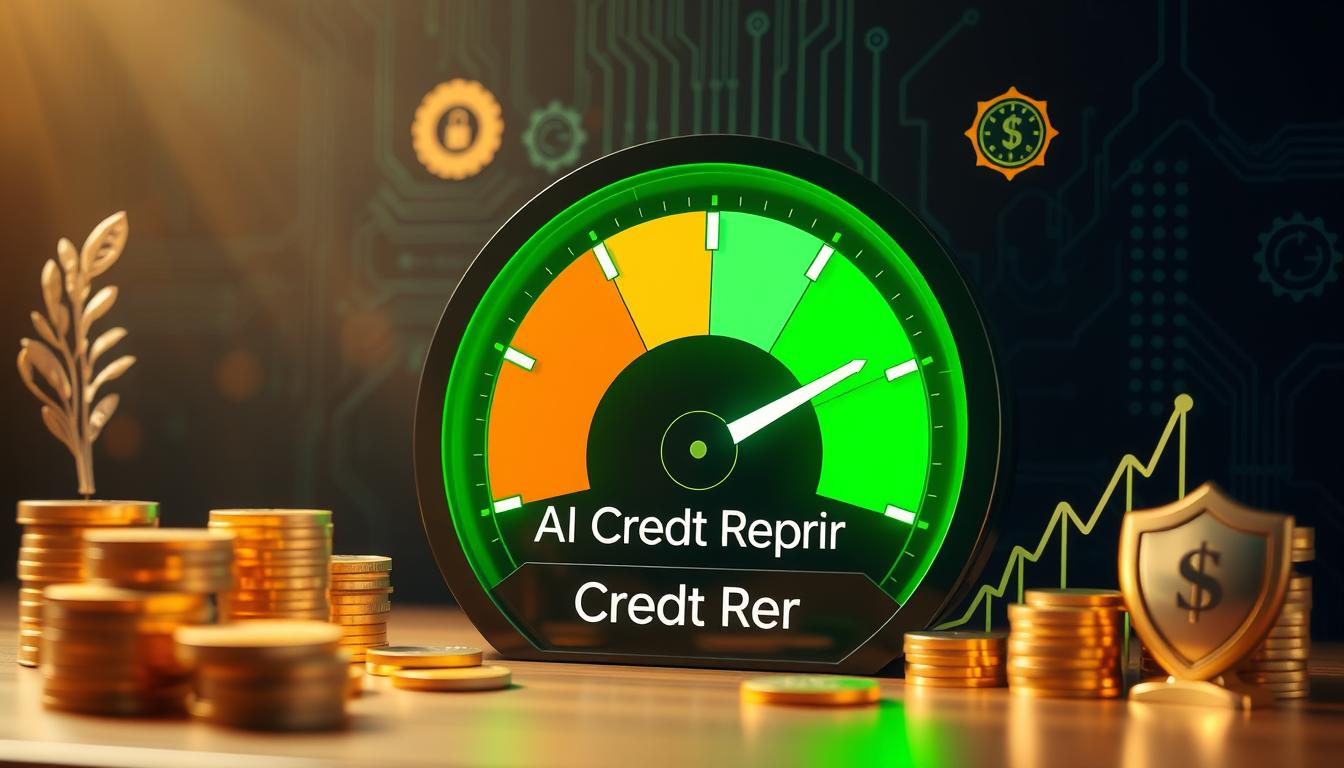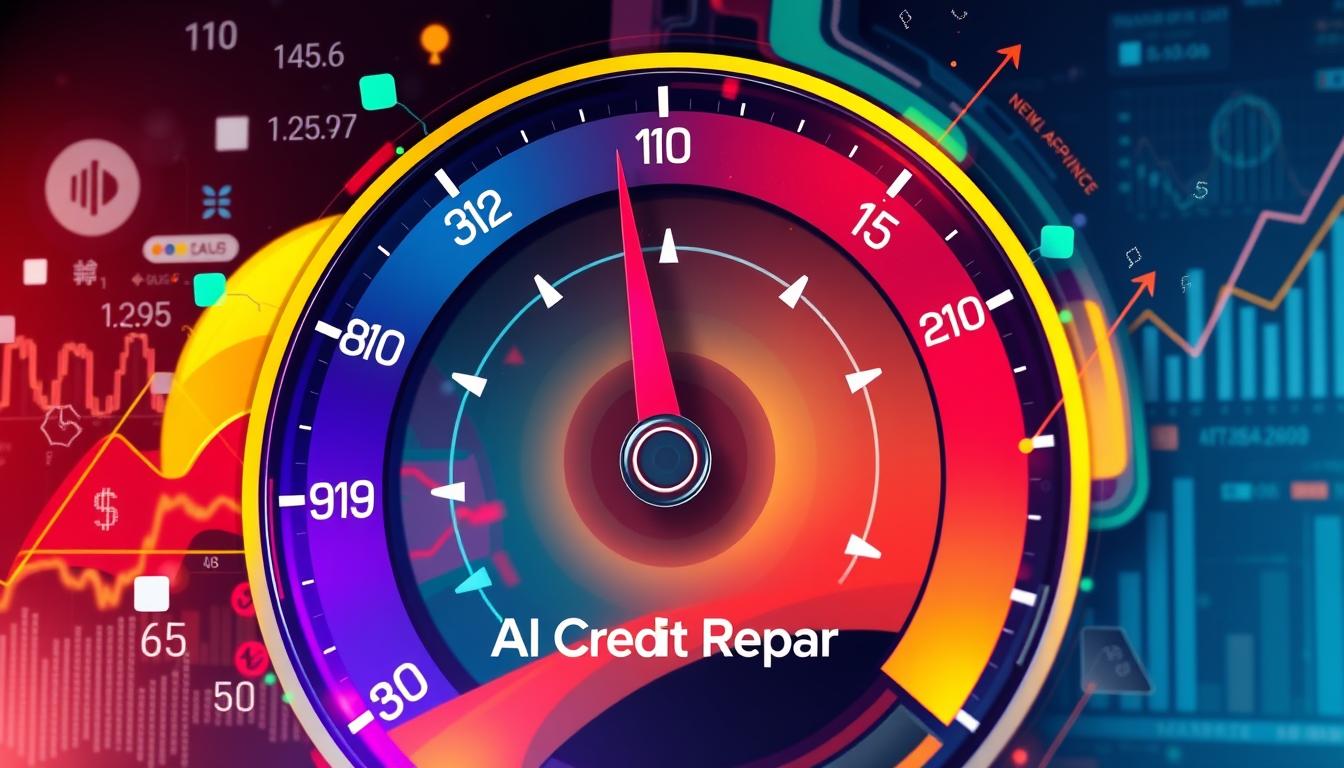Managing your credit is crucial in today’s digital world. Credit Karma is a popular tool for monitoring credit health. Many wonder about its accuracy compared to actual credit scores.
We’ll explore Credit Karma’s score calculation and factors affecting its accuracy. We’ll also discuss strategies for maintaining a healthy credit profile.
Key Takeaways
- Credit Karma provides an estimate of your credit score, but it may not always match your actual credit score from the major credit bureaus.
- Factors such as the credit scoring model used, the timing of credit report updates, and the specific information in your credit file can contribute to the difference between the Credit Karma score and your official score.
- Regularly monitoring your credit score, disputing errors on your credit report, and implementing strategies to improve your credit can help you maintain a healthy credit profile.
- Understanding the differences between FICO and VantageScore models can provide valuable insights into the variations in your credit scores.
- Maintaining good credit habits, such as paying bills on time and keeping balances low, is crucial for building and maintaining a strong credit history.
Understanding Credit Karma and Its Score Calculation
Credit Karma offers free credit monitoring. It provides credit reports and scores from Vantage Score 3.0 and TransUnion. Let’s explore how Credit Karma calculates your credit score.
What Is Credit Karma?
Credit Karma is a fintech company offering free credit services. It provides credit reports and scores at no cost. The platform uses the VantageScore 3.0 model developed by major credit bureaus.
How Does Credit Karma Calculate Your Credit Score?
Credit Karma uses your TransUnion credit report for score calculation. It analyzes various factors using the VantageScore 3.0 model. These factors determine your overall creditworthiness.
- Payment history: Your track record of making on-time payments on credit accounts, loans, and other financial obligations.
- Credit utilization: The amount of available credit you’re using, expressed as a percentage.
- Credit age: The length of your credit history, including the age of your oldest and newest accounts.
- Credit mix: The diversity of your credit accounts, such as credit cards, loans, and mortgages.
- Hard inquiries: The number of times you’ve applied for new credit, which can temporarily impact your credit score.
Credit Karma calculates your VantageScore 3.0 based on these factors. The score ranges from 300 to 850. Your account displays this score with insights for improvement.

Credit Karma’s score may differ from other platforms or lenders. Different models and data sources can cause variations. Lenders may also consider additional factors when assessing creditworthiness.
Factors That Influence the Difference Between Credit Karma and Actual Scores
Several key factors can cause differences between your Credit Karma score and actual credit score. Understanding these differences helps maintain an accurate view of your financial standing.
The credit scoring model used is a significant factor. Credit Karma uses the VantageScore model, while lenders often use FICO. These models can yield different results, causing score discrepancies.
The timing of credit report updates also affects score variations. Credit Karma may access your information at different times than lenders’ bureaus. This can lead to temporary fluctuations in scores.
- The availability of certain information in your credit report impacts score accuracy. Recent applications, payment history, and credit use all influence the score.
- Credit reporting errors or incomplete information can cause inaccuracies. These may lead to differences between your Credit Karma and actual scores.
Understanding these factors is crucial for maintaining a clear picture of your financial health. It helps explain why is credit karma score different from your actual score.
Recognizing factors affecting credit karma score accuracy allows you to better interpret your credit standing. This knowledge helps you navigate discrepancies between credit karma and actual score.
“Credit Karma scores and actual credit scores may not always match perfectly. However, both provide valuable insights into your overall creditworthiness.”
The Importance of Monitoring Your Credit Score
Your credit score reflects your financial health. It impacts your ability to get credit, loans, housing, and jobs. Regularly checking your credit score ensures accuracy and maintains a healthy financial profile.
Why Your Credit Score Matters
Lenders use your credit score to assess your creditworthiness. A higher score makes qualifying for loans and credit cards easier. It often leads to better interest rates.
A low score can make accessing credit difficult. It may result in higher borrowing costs or even loan denials.
Benefits of Regularly Checking Your Credit Score
- Identify and address errors: Regular reviews help spot and dispute inaccuracies. This ensures your credit history accurately represents your financial responsibility.
- Monitor for identity theft: Checking your score and report can reveal suspicious activity. This includes unauthorized accounts or inquiries, which might indicate identity theft.
- Improve your credit: Understanding what affects your score helps you take steps to improve it. Pay bills on time, reduce balances, and build a positive credit history.
Monitoring your credit score is a proactive financial step. It helps you maintain a healthy financial future.
Understanding your credit score’s importance allows you to control your financial well-being. This positions you for greater success.

How Far Off Is Credit Karma From Your Actual Score?
Credit Karma is a popular tool for monitoring credit health. But how close is its score to your real credit score? The difference can be surprising.
Studies show Credit Karma scores can differ from actual credit scores. The gap can be anywhere from 20 to 100 points. This is because of different scoring models used.
Credit Karma uses the VantageScore model. It’s created by the three major credit bureaus. Most lenders use the FICO score instead. This is the actual credit score that matters most.
These models use different methods and data. This causes variations between Credit Karma and real credit scores. Credit Karma’s score is a general indicator of credit health. It’s not a definitive measure of creditworthiness.
“The Credit Karma score should be viewed as a helpful tool in monitoring your credit, but it should not be considered a replacement for your actual credit score.”
For accuracy, check your official credit reports and scores regularly. Get them from the three major credit bureaus. This gives a fuller picture of your credit profile.
Use this information to make smart financial choices. Remember, Credit Karma is a guide, not the final word on your credit.

Strategies to Improve Your Credit Score
Boosting your credit score is vital for financial health. Several tactics can help you enhance your credit rating. These strategies can lead to a higher score and its associated perks.
Pay Bills on Time
Consistently paying bills on time is crucial for credit improvement. Payment history significantly impacts your credit score. Set up automatic payments or reminders to avoid missing due dates.
This applies to credit card bills, loans, and other financial commitments. Timely payments can greatly boost your credit score over time.
Reduce Outstanding Balances
Lowering your outstanding balances is another key strategy. Your credit utilization ratio affects your score significantly. Aim to keep this ratio below 30% for better results.
Consider paying down your balances regularly. This can improve your credit score and financial stability.

These strategies can help you actively enhance your credit score. Remember, improving credit takes time and consistent effort. The long-term benefits of a good credit score are worth the work.
Disputing Errors on Your Credit Report
An accurate credit report is vital for your financial health. Spotting errors? Take action to dispute them. The credit report dispute process ensures correct information, affecting your credit score.
Follow these steps to how to dispute errors on credit report:
- Carefully review your credit report: Check all sections for inaccuracies in account info, payment history, and public records.
- Gather supporting documentation: Collect evidence like bills and statements to prove the error on your report.
- Contact the credit reporting agency: Write a formal dispute letter to Experian, Equifax, or TransUnion with errors and evidence.
- Follow up on the dispute: Track your dispute’s progress. Be ready to provide more information if needed.
- Verify the resolution: After the dispute, review your updated report to confirm the error’s correction.
Managing your credit report dispute process keeps your credit profile accurate. This helps your Credit Karma score match your actual credit score.
“Regularly checking your credit report and addressing any errors is essential for maintaining a healthy credit profile.”
The Role of Different Credit Scoring Models
Different credit scoring models exist in the United States. The main systems are FICO and VantageScore. Understanding these models can explain differences between your Credit Karma score and actual credit score.
FICO Score vs. VantageScore
FICO, created by Fair Isaac Corporation, is the most common credit scoring model. It considers payment history, credit use, and credit history length. FICO scores range from 300 to 850.
VantageScore was developed by Experian, Equifax, and TransUnion. It uses a similar 300-850 range but may weigh factors differently than FICO.
Both models assess creditworthiness but can produce different results. This is due to varying algorithms and importance placed on credit factors. Your Credit Karma score, based on VantageScore, may differ from your FICO score.
Knowing these differences helps you interpret credit reports better. It allows you to monitor your credit health more effectively. You can take steps to improve your credit profile and ensure accuracy.
Tips for Maintaining a Healthy Credit Profile
A healthy credit profile is crucial for many aspects of life. It affects loan terms, renting apartments, and even job prospects. By using simple strategies, you can keep your Credit Karma score accurate.
Monitor Your Credit Reports Regularly
Check your credit reports from Experian, Equifax, and TransUnion often. This helps you spot and fix any errors quickly. Regular reviews prevent inaccuracies from hurting your credit score.
Utilize Credit-Building Tools
Use tools like secured credit cards and credit-building loans. These can help establish or improve your credit history. Over time, they can lead to a higher credit score.
Practice Responsible Financial Habits
- Make all your payments on time, as payment history is a significant factor in your credit score.
- Keep your credit card balances low, aiming to use less than 30% of your available credit limit.
- Avoid opening too many new credit accounts at once, as this can temporarily lower your credit score.
Follow these credit health tips to maintain good credit effectively. Responsible financial behavior is key to a healthy credit profile. Stay consistent in your habits to manage your credit profile well.
“Your credit score is the foundation of your financial future. Take the time to understand and nurture it.”
Conclusion
Credit Karma scores can differ from your actual credit score. They provide estimates based on available information, which may not match lenders’ scores.
Credit Karma is useful for monitoring your credit profile. However, it shouldn’t be the only factor in financial decisions. Regular credit checks are essential for a healthy credit profile.
The reliability of Credit Karma scores depends on various factors. Stay informed and check your credit reports regularly. Take steps to improve your creditworthiness for a solid financial future.

